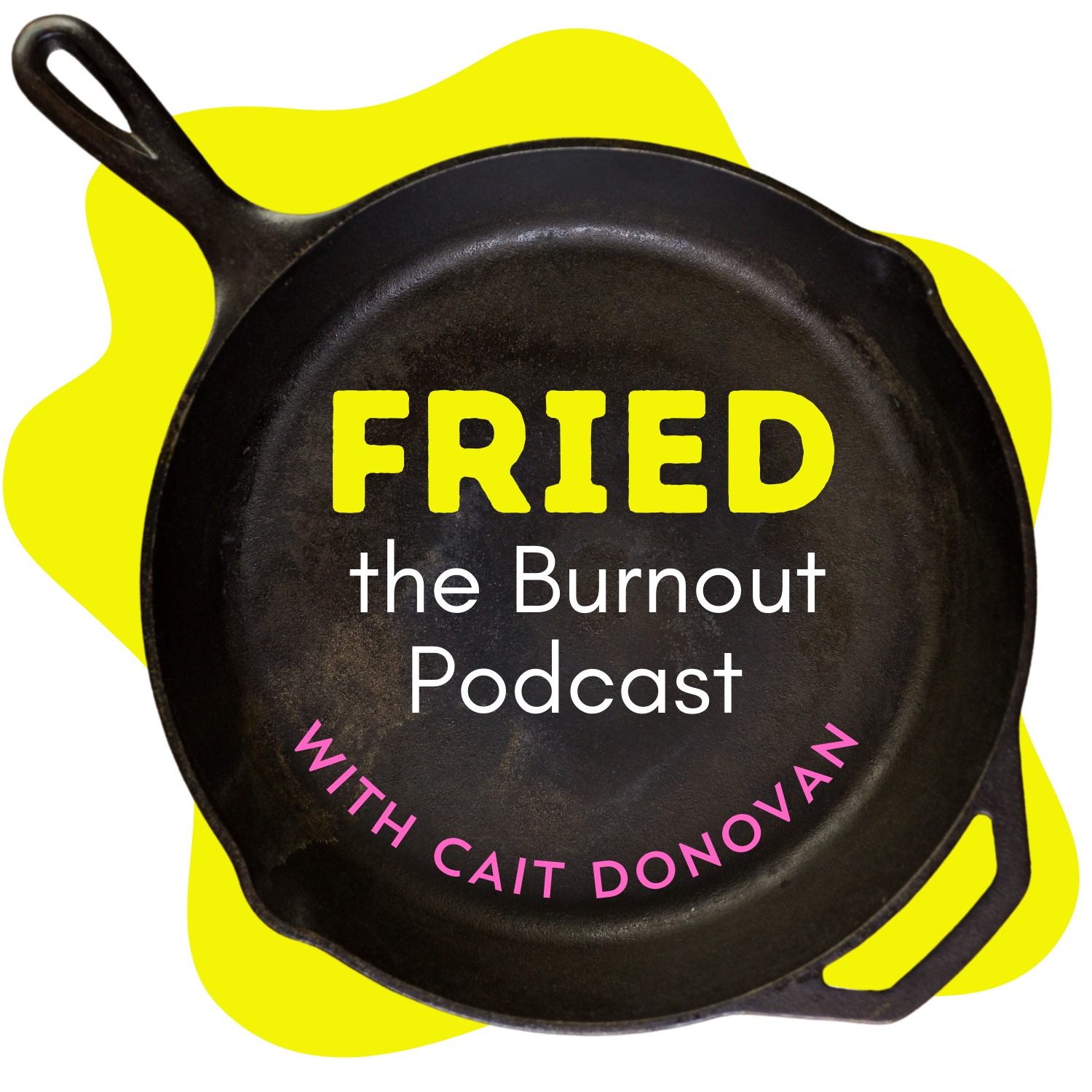#straightfromcait: How to Tell if Its Burnout or Stress
Description
Introduction:
In this episode of Fried. The Burnout Podcast, I delve into the topic of differentiating between burnout and stress. I often encounter this question from you, my magic listeners, and others: whether it's at conferences, speaking gigs, or even in the Facebook group. Understanding the distinction between burnout and stress is crucial to address the issue effectively. So let's explore how to recognize and differentiate between these two conditions.
1. Defining Burnout and Stress:
Burnout is not simply an escalated form of stress but rather an end result of chronic, unresolved stress over extended periods. According to the World Health Organization, burnout is characterized by three key elements:
Feelings of physical and emotional exhaustionCynicism and detachmentA lack of impact and productivity2. Stress:
Stress, on the other hand, is a natural response of the body to any challenge, be it environmental, emotional, or physical. It is a short-term reaction with a time-bound measure, meaning it arises and subsides, especially when the stress cycle is completed.
3. Recoverability as a Differentiating Factor:
One way to distinguish stress from burnout is by assessing recoverability. When experiencing stress, a few days of rest or a good night's sleep can often suffice to rejuvenate and return to a state of equilibrium. However, in the case of burnout, recovery becomes challenging. Even extended periods of rest may not alleviate the symptoms, making individuals feel stuck in a perpetual stress cycle.
4. Identifying Burnout Symptoms:
Burnout manifests in a host of physical and mental symptoms, such as headaches, digestive issues, explosive emotions, frequent colds and flus, anxiety, and depression. These symptoms persist and hinder one's ability to move forward.
5. The Timeframe for Burnout Recovery:
Addressing burnout requires understanding that it is not a quick fix. Unlike simple stress, which can be managed relatively swiftly, burnout recovery can take anywhere from 12 months to three years, and in some cases, even longer. Patience and consistent effort are vital during this process.
6. Seeking Professional Support:
Navigating burnout alone can be overwhelming. Seeking help from professionals specializing in burnout recovery can significantly speed up and ease the process. Burnout coaching and therapy can work hand in hand to provide comprehensive support.
Conclusion:
The key takeaway from this episode is that if you find yourself unable to recover from exhaustion and stress despite various attempts, it might be burnout rather than just stress. Recognizing the difference is crucial to implement the right strategies for recovery. Remember, seeking help from professionals can make a significant difference in your burnout recovery journey. You don't have to face it alone.
To access coaching sessions with Cait or Sarah, book a call at bit.ly/callcait or bit.ly/callsarahv, respectively.
Our expertise can guide you through the process and offer support for your full burnout recovery process! :)
[Show Notes Captured thanks to ChatGPT]
More Episodes
Need to get started on your burnout recovery? Download the Core Values Worksheet today!
“The home is a container for our sensory inputs, and the inputs to our sense organs affect us tremendously,” says Dr. Jaime Rabin, doctor of acupuncture, certified feng shui practitioner and executive leader...
Published 06/02/24
Published 06/02/24
Need to get started on your burnout recovery? Download the Core Values Worksheet today!
“When I’m stressed, I trip more, I bang into things more, I stub my toe more—so there’s definitely something going on here,” Cait shares, highlighting the curious link between burnout and clumsiness. In this...
Published 05/26/24


